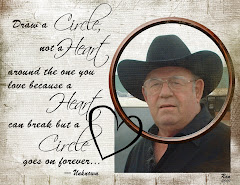The Hoppers were true pioneer settlers of California. David Davenport Hopper was born on September 12, 1825 on the Chickamauga Creek, about ten miles from Chattanooga, Tennessee the seventh child of John David Hopper and Mary Davenport. When David was about fifteen years of age, he and his family moved to Lafayette County, Missouri, where he met Clarissa "Dicie" Young, a native of Lafayette County, Missouri. Dicie was born March 20, 1825 and was the daughter of John Young and Sarah Hopper. John Young died on the plains and was buried on the Green River while with an earlier wagon train party. Sarah Ann Hopper was the daughter of Thomas and Rebecca Jeanie Gray Hopper and Thomas Hopper was a brother to David's father, John David Hopper. David and Dicie were married on January 23, 1845 in Lafayette Co., Missouri. Two daughters were born to David and Dicie in Lafayette County, Missouri, Mary Catherine, on November 19, 1845, and Sarah Eveline, on October 04, 1848.
Some of the Hoppers and Youngs were probably members of the Hudspeth/Myers party. David, Dicie, and their two daughters, Sarah who was four and Mary who was six, came out with the Hagans-Cockrill party in 1853. The 125 members of this particular party was a collection of families and friends making up a significant portion of the village of Pleasant Gap in Bates County. They came well prepared and self-sufficient to contend with any difficulty that their new unsettled home might confront them with. Their 31 wagons, filled with the supplies and tools which it was in their experience necessary to sustain life in a wilderness, were each drawn by 4 to 6 oxen depending on the load. There was also a "chest of money" in one of the wagons to buy land with. For the most part, the wagons were too full to ride in except for the drivers, and most of the members of the band walked the distance, along with a thousand head of cattle, a similar amount of sheep, several fine horses, milk cows, and one would assume, a small menagerie of chickens, ducks, dogs and cats -- all that was necessary to seed a successful life with their experience.
From 1853 to 1854, Hopper settled near Penngrove, Sonoma County, California and remained there for a year. The Hoppers moved several times and from 1854 to 1856, they settled in New Town near Petaluma, which was a development of his cousin, Thomas Hopper. Thomas Hopper was one of the first to make money in the mines. He could not read or write, but became president-owner of three banks in Sonoma County. His son urged him to learn how to read and write, but he replied that he would do so as soon as his son could sign his name to as big a check as he could. Their Petaluma residence occupied the present site of the Northwestern Pacific Depot, and there Mr. Hopper conducted a dairy for two years.
In 1857, he located on a branch of the Skaggs Springs/Gualala River, now known as Old House Creek, which was derived its name from the house that David built on the bank of that creek. There he also took up a claim and soon afterward bought an adjoining ranch from John Moffett and Wilson Brown. Thus becoming the owner of, between seven and eight thousand acres. Subsequently the family returned to Healdsburg in order that he might give his children better education advantages, but he remained on the ranch most of the time raising sheep on the Gualala River, which is on the northern border of Sonoma County. A third daughter, Ida Jane, was born in Healdsburg, in 1860.
Mr. Hopper was one of the most successful and noted hunters who ever lived in this part of the state. He killed many bears, including grizzly, black, and cinnamon, also eight wolves, many panthers and innumerable deer. During one winter season he killed thirty-five bears. He used an old muzzle-loading gun which once failed to fire after he had wounded a cinnamon bear, and the enraged animal attacked him, but he killed it with a hatchet. Mr. Hopper had the respect and confidence of all who knew him and was a most liberal man, very devoted to his family.
Soon after his daughter, Ida Jane, became the wife of Mr. Nathan Henry Cox (1876), he gave her a tract of two hundred and twenty-five acres of land near Healdsburg and he also presented his two other daughters with fine ranches. He was a wonderfully big hearted man whose only thought was to see his family comfortably situated.
In 1865, Hopper bought the A.B. Aull ranch on Westside Road, where he built a fine house and resided with his wife until his death on December 4, 1907. Dicie Hopper died six years later in 1913. In 2006, the Hopper house still stands at 1710 Westside Road. David Davenport and most of his family are buried in the Oak Mound Cemetery, Healdsburg, Sonoma County, California.





